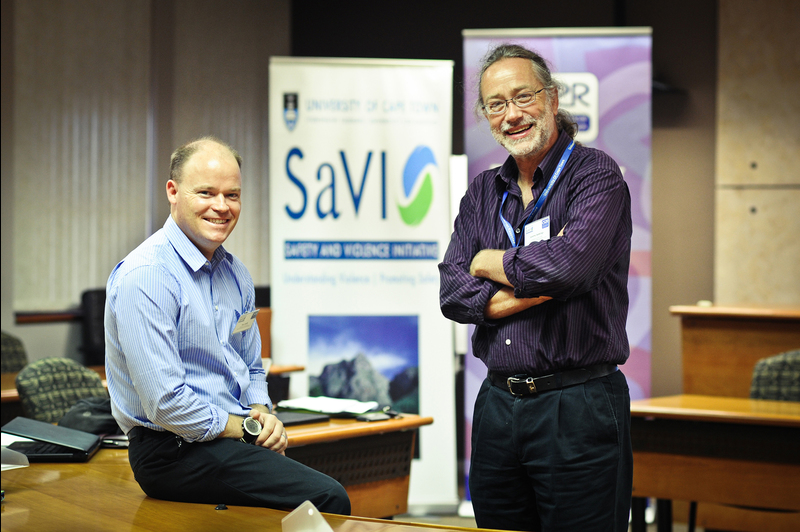Violence and alcohol: workshop examines dangerous brew
06 March 2013 | Story by Newsroom
A recent workshop hosted by the Safety and Violence Initiative (SaVI) and the Centre for Social Science Research (CSSR), examined the link between alcohol and violence in South Africa, at a time when the subject is high on the national agenda.
SaVI, directed by Guy Lamb, is a UCT network of researchers concerned with diverse aspects of safety and violence in South Africa. The CSSR, directed by Professor Jeremy Seekings, is one of several research groups at UCT that participates in SaVI.
The aim of the workshop was to host a conversation between different researchers and practitioners with a common concern around the subject of drinking and violence, but who work in separate fields with little or no interaction with each other.
The workshop brought together three groups of people: medical researchers, who know about violence because injured patients arrive at clinics (and bodies arrive at mortuaries); social scientists, who often encounter drinking while studying violence, or vice versa; and practitioners, who are trying to effect successful interventions to reduce violence through addressing drinking.
About 50 delegates attended the two-day workshop. They included a mix of UCT academics and graduate students from diverse faculties, some visiting scholars, together with a number of practitioners from, for example, the Chrysalis Academy in Tokai, and the City Council's Violence Prevention through Urban Upgrading, (VPUU) project). Four of the presentations were from members of a joint project between King's College, London, and UCT.
Seekings said the workshop was the first step in a process to harness research into alcohol and violence. The process has been funded by the VC's Strategic Fund.
"The next step is to commission some new research," he said. "Then, at the end of this year or early next year, we'll hold a second workshop for people to present new findings from research or practical interventions."
He believes the workshop achieved two major objectives.
"First, we all realised that the link between drinking and violence is a lot more complex than is often suggested. There are many pathways to violence, and some lead through drinking, and others not. Many people drink, and even drink heavily, without becoming violent.
"Secondly, we know more than we thought, because there are more people chipping away at the problem than most of us imagined."
 This work is licensed under a Creative Commons Attribution-NoDerivatives 4.0 International License.
This work is licensed under a Creative Commons Attribution-NoDerivatives 4.0 International License.
Please view the republishing articles page for more information.










